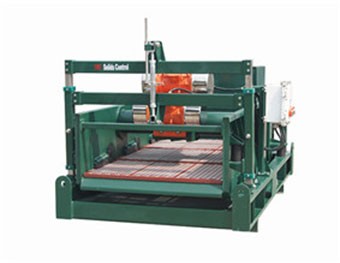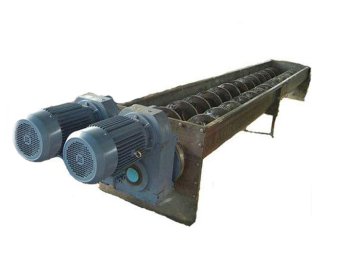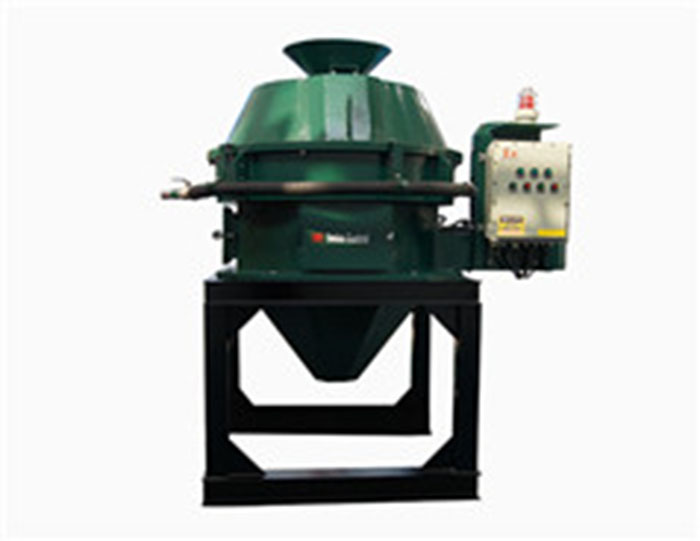In the complex realm of oil and gas exploration, efficient management of drilling fluids is paramount to ensure safety, productivity, and environmental responsibility. Central to this process is the implementation of robust solid control mechanisms, which play a pivotal role in separating cuttings and contaminants from drilling mud. The integration of solid control system components and solid control equipment used in drilling operation has revolutionized modern drilling practices, enabling operators to maintain optimal fluid properties while minimizing waste and operational risks.

The Framework of a Solid Control System
A solid control system serves as the backbone of any drilling rig, designed to process drilling fluids and remove solid particles generated during the drilling process. These systems typically consist of a series of equipment such as shale shakers, desanders, desilters, centrifuges, and mud cleaners. For instance, in a typical oil drilling operation, the solid control system starts with a shale shaker that screens out the largest cuttings, followed by desanders and desilters that remove smaller particles using hydrocyclone technology. By systematically reducing the solid content in the drilling mud, the solid control system enhances fluid performance, extends equipment life, and reduces the environmental impact of drilling waste.
Solid Control Equipment in Rig Operations
On - site drilling rigs rely heavily on solid control equipment in rig to maintain the integrity of drilling fluids. Shale shakers are among the most critical components, utilizing vibrating screens to separate coarse cuttings from the mud. Their efficiency directly impacts the downstream processes, as excessive solids can lead to increased pump wear and reduced drilling efficiency. Desanders and desilters, which operate based on the principle of centrifugal force, further refine the fluid by removing medium and fine particles. Centrifuges, on the other hand, are used for fine - tuning, capable of separating ultra - fine solids and recovering valuable base fluids. The strategic placement and operation of solid control equipment in rig are essential for maintaining the balance between fluid density, viscosity, and lubricity, all of which are critical for safe and efficient drilling.
Optimizing Drilling Operations with Specialized Equipment
Solid control equipment used in drilling operation is engineered to withstand the harsh conditions of oil and gas wells, where high pressures, abrasive solids, and extreme temperatures are common. For example, high - G - force centrifuges are designed to handle heavy - duty applications, efficiently separating solids from weighted muds used in deep - well drilling. Mud cleaners combine the functions of shale shakers and hydrocyclones, providing a compact solution for simultaneous screening and cycloning. By integrating such specialized equipment, operators can effectively manage the solid content in drilling fluids, preventing issues like formation damage, equipment failure, and excessive fluid loss. The use of solid control equipment used in drilling operation is not only a technical necessity but also a strategic investment in operational longevity and cost - efficiency.
The Role of Solid Control Oil Drilling Companies
Solid control oil drilling companies play a pivotal role in providing end - to - end solutions for drilling fluid management. These companies specialize in manufacturing, supplying, and maintaining advanced solid control equipment, tailored to the unique requirements of different drilling projects. They offer comprehensive systems that comply with international standards for safety and environmental protection, ensuring that operators can meet regulatory demands while optimizing performance. For instance, a solid control oil drilling company might provide a turnkey solution that includes equipment selection, on - site installation, operator training, and maintenance support. Their expertise in fluid dynamics and solids separation technology helps clients navigate the challenges of various drilling environments, from onshore shale plays to offshore deepwater operations.
FAQ: Key Insights into Solid Control Solutions
How to choose the right solid control equipment for a specific drilling project?
Selecting appropriate solid control equipment used in drilling operation requires assessing factors such as well depth, formation type, drilling fluid properties, and environmental regulations. For shallow wells with non - abrasive formations, a basic system with a shale shaker and desander may suffice. In contrast, deep - water drilling often demands advanced centrifuges and mud cleaners to handle high - density fluids and ultra - fine solids. Consulting with solid control oil drilling companies can help tailor the system to the project’s unique needs, ensuring optimal performance and cost - effectiveness.
What is the importance of regular maintenance for solid control systems?
Regular maintenance of solid control system components is critical to prevent equipment failure and maintain separation efficiency. Wear and tear on screens, hydrocyclone nozzles, and centrifuge parts can reduce performance over time, leading to increased solids in the mud and potential operational disruptions. Scheduled inspections, component replacements, and proper cleaning routines help extend equipment life, minimize downtime, and ensure the system operates at peak efficiency throughout the drilling campaign.
How do solid control systems contribute to environmental sustainability?
Solid control systems play a vital role in reducing the environmental footprint of drilling operations by minimizing waste generation. By efficiently separating and recovering drilling fluids, they reduce the need for fresh fluid makeup and the disposal of contaminated mud. Additionally, proper solids management prevents the release of harmful substances into the environment, ensuring compliance with strict ecological regulations. Modern solid control equipment in rig often incorporates eco - friendly features, such as closed - loop systems and energy - efficient designs, further enhancing their sustainability profile.
What criteria should be considered when selecting a solid control oil drilling company?
When choosing a solid control oil drilling company, evaluate their experience in the specific type of drilling operation, the quality and durability of their equipment, and their ability to provide technical support. Look for companies with a proven track record in delivering reliable systems for similar projects, as well as those that offer comprehensive services, including installation, training, and after - sales support. Certifications compliant with industry standards (such as API specifications) and a commitment to innovation are also important indicators of a company’s reliability and expertise.
How do advancements in solid control technology impact drilling efficiency?
Innovations in solid control technology, such as automated monitoring systems, high - efficiency centrifuges, and smart sensors, have significantly improved drilling efficiency. Automated systems can real - time monitor fluid properties and adjust equipment settings for optimal solids removal, reducing the need for manual intervention. High - G centrifuges enable better recovery of expensive base fluids from cuttings, while smart sensors predict equipment failures before they occur. These advancements not only enhance operational safety but also contribute to cost savings by minimizing fluid waste and downtime associated with equipment malfunctions.
 Linear Motion Shale Shaker In Drilling Rig
Linear Motion Shale Shaker In Drilling Rig  Oilfield Mud Cleaner
Oilfield Mud Cleaner  Drilling Fluid Decanter Centrifuge
Drilling Fluid Decanter Centrifuge Drilling Mud Desander
Hydrocyclone Desilter
Centrifugal Pump/Centrifugal Mud Pump
Shear Pump
Jet Mud Mixer
Horizontal Mud Agitator
Constant Pressure Drilling Fluid Mud Gas Separator
Mud Gun
 Mud Tank
Mud Tank Solids Control System Vacuum Degasser
 Flare Ignition Device
Flare Ignition Device  Diesel Tank
Diesel Tank  Submersible Slurry Pump
Submersible Slurry Pump 




































